If there’s one place where AI, SaaS, capital, and founders collide in one ecosystem, it’s SaaStock Europe — and this year in Dublin (October 13–15), that collision felt more like controlled combustion than casual networking.
Mellivora Software was there through our CEO, Olga Pogozheva, and what stood out immediately was this: AI isn’t a feature anymore — it’s the operating model and a must if you are planning your own SaaS business in 2026.
From the main stage to the side sessions and pitch floors, the conversations weren’t about “whether” AI belongs in the current IT landscape and your roadmap, but how fast you can inject it without blowing up your margins, product strategy, or delivery pipeline. To put it short? It was AI talks all the way through the conference.
Below are the key sessions and themes that shaped this year’s event — and why they matter to anyone building or scaling tech products with lean teams and global partners like Mellivora.
🔹 AI as an ARR Engine, Not a Buzzword
One of the sessions that stood out was with Nathan Latka (Founderpath), who doesn’t waste time with theory, and his talk — “9 Ways to Add $1M ARR Using New AI Tactics” — was exactly what founders wanted: fast revenue frameworks, not philosophy.
Nathan spoke about the power of his podcast and personal branding, which is never out of date despite AI tools:
- how he used a clever podcast tactic to get 49K email list subscribers
- how he leveraged that podcast to write #3 bestseller book,
- Podcast is like code - you create it once and sell it forever
Nathan also emphasized how you should never underestimate the power of “Anti-AI Marketing”, giving amazing examples on how the viral ads that skyrocketed companies’ revenues and boosted their online presence were created by their fans, not marketing departments.
To unfold the “Anti AI Marketing”, you should follow the algorithm:
- Find listicles in your space and pay writer like an affiliate
- Test a new story with a product offer. If it does viral, build waitlist, build product
- Generic podcasts die. You cannot just teach. You must entertain. What’s your POV?..
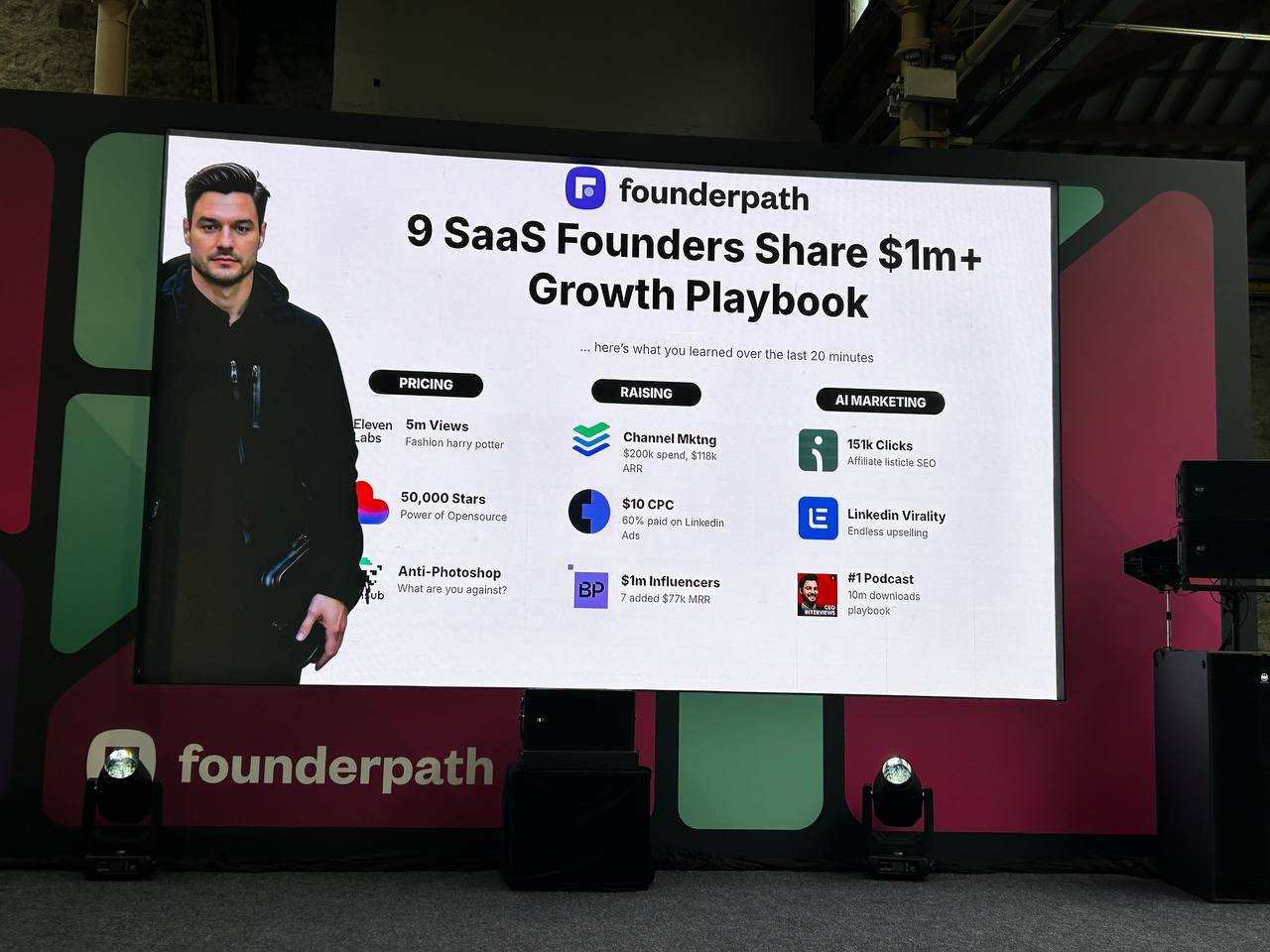
🔹 AWS + Tines: Building AI Products Without Burning Out Your Team
One of the most grounded conversations came from Áine Mulloy (AWS) and Thomas Kinsella (Tines) in their session on building AI-enabled products.
They talked openly about:
- When to build native AI vs. integrate via APIs
- Why some companies ship fast — and others get stuck debating ethics while competitors launch
- Tines’ approach on building a SaaS product for their clients
This wasn’t a hype talk — it was the operational view: AI as core infrastructure. And for outsourcing partners, it reinforces the shift toward product-first engineering teams, not “just developers on demand.”
That’s been Mellivora’s focus long before it became mainstream, but let’s not deviate from the topic here. :)
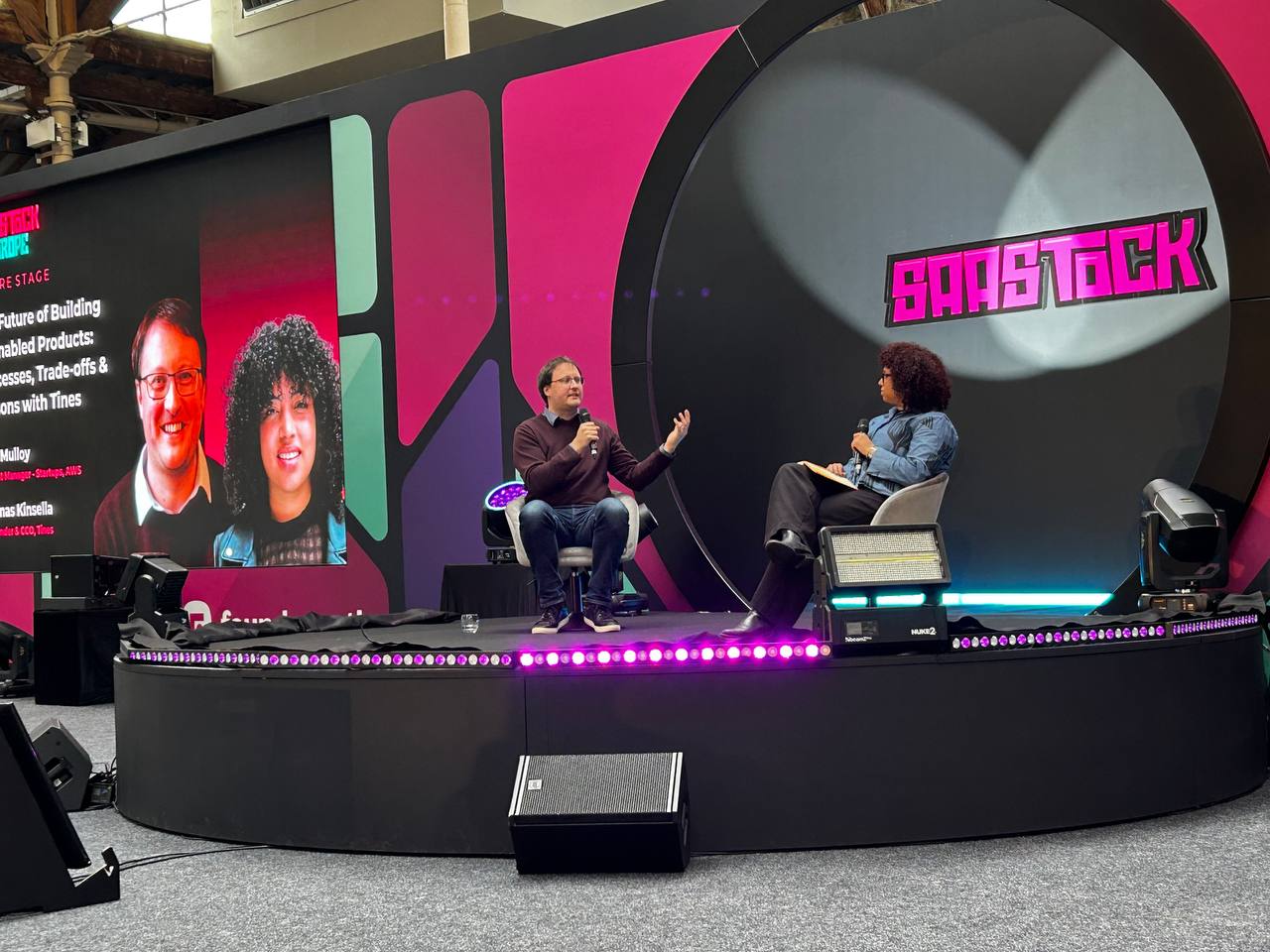
🔹 Guy Podjarny: AI Revolution, Not Evolution
If anyone delivered a wake-up call, it was Guy Podjarny (Tessl) with his session “Leading an AI Revolution, Not Evolution” , which covered how startups tried to find their way into today’s AI-dominated landscape.
Guy used Jeff Bezos’ quote about the importance of wandering, which is a kind of humility: “If you have to explore, maybe it’s inefficient, but it’s valuable, and it’s a recognition of humility not knowing whether and how you get there”.
Guy emphasized the importance of creating a product that would serve well into the future. He provided few outstanding examples of unicorns, who anchored in the future, and how their stories were different from their competitors, who didn’t make it far. Among those examples Snyk, Cyera, Cloudinary, Google and others.
His message hit hard: You don’t “upgrade” your company with AI — you rebuild how you engineer, deliver, and scale. The winners won’t be gradual adopters. They’ll be the ones who treat AI like electricity, not an accessory.
For CTOs, founders, and engineering partners, that means rethinking team structure, velocity, and product cycles. Not tweaking what already exists.
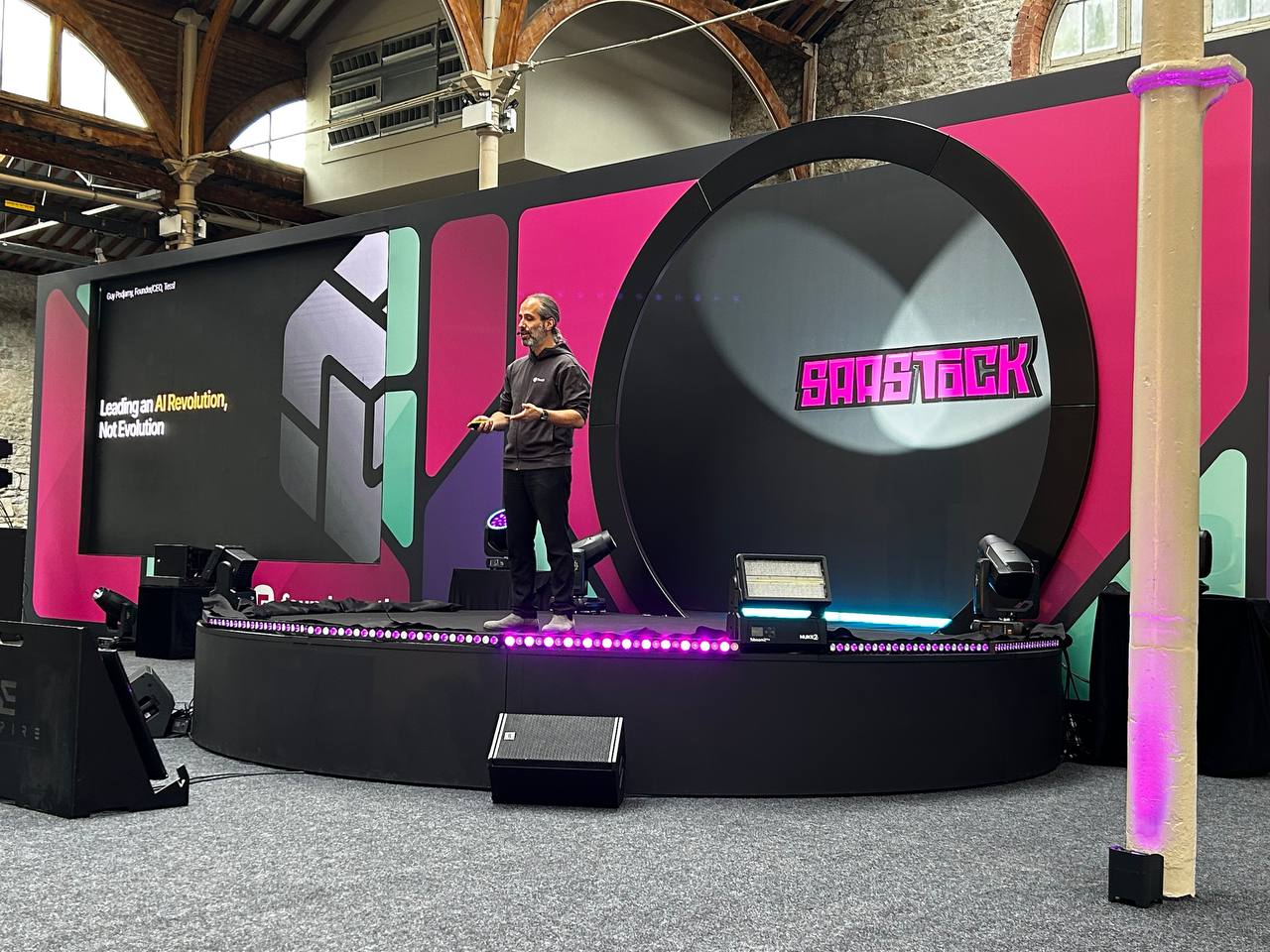
🔹 The Pitch Competitions: AI-Native Startups Only, Please
Across the three days, pitch sessions flooded the stage — with the finals closing on Day 3. You could instantly tell which founders were building AI-first versus AI-later.
Trends that stood out:
- MVP now often means AI-native prototype
- Lean teams are replacing seed-round bloat
- Technical execution is being outsourced to specialized partners, not generalist agencies, whilst the core development is still preferred to be done in-house
For Mellivora Software — already working with startups on team building, MVPs, and rapid launches — the demand is only getting louder.
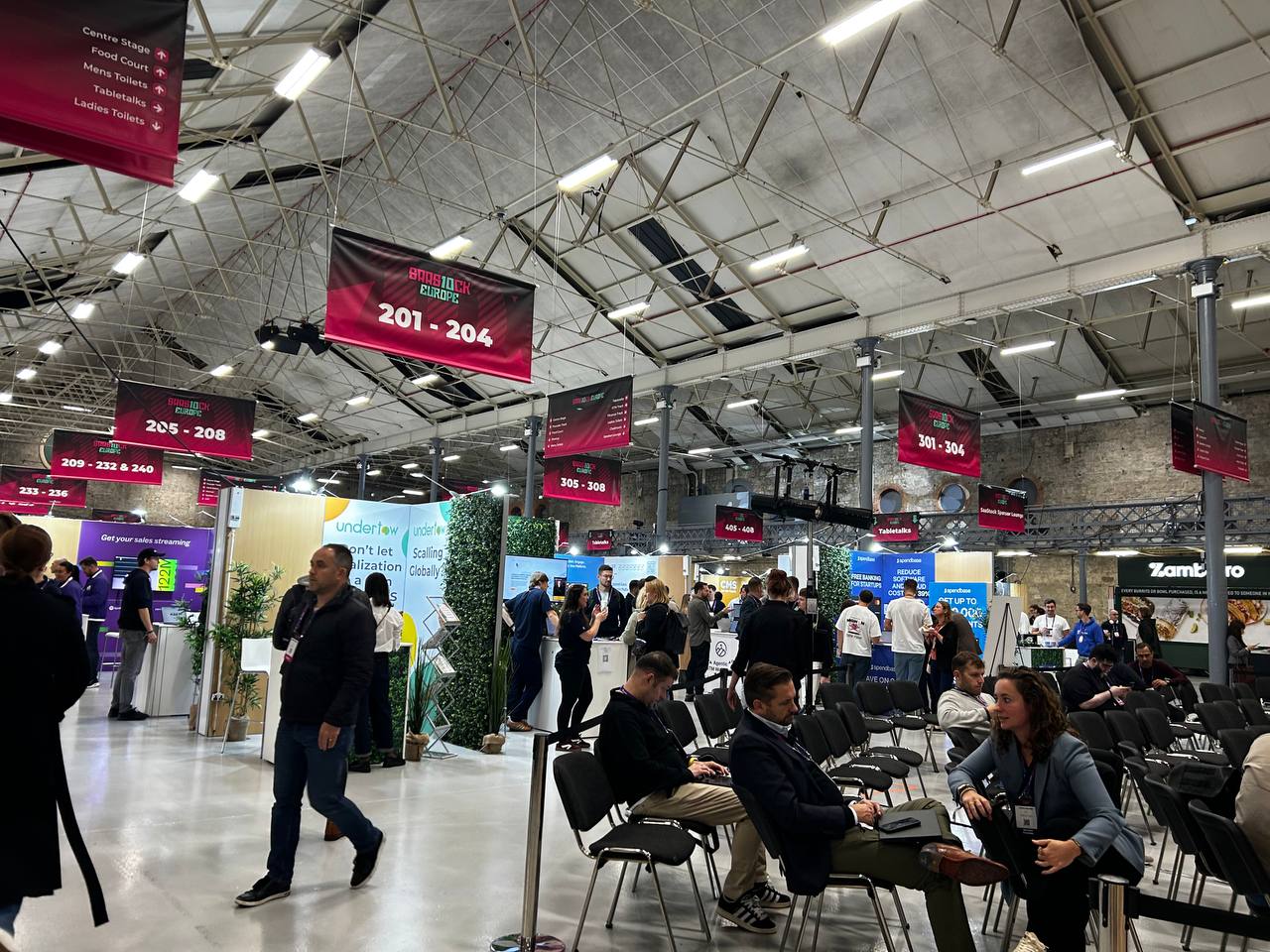
🔹 HubSpot’s Shift: GTM Isn’t Human-Led Anymore
Kieran Flanagan from HubSpot didn’t just talk about marketing — he talked about rewriting their go-to-market playbook with AI at the center (and how implementing new marketing tactics crucially increases your metrics).
His talk, “How HubSpot is Rewriting GTM in the AI Era,” pointed to major changes inside large-scale SaaS, and was packed with value (and no, this is not a generic praise!).
Kieran mentioned what metrics matter, why 95% of AI projects fail - and why 5% survive and strive. The key here is the Context Layer (“AI converts signals into reusable context”):
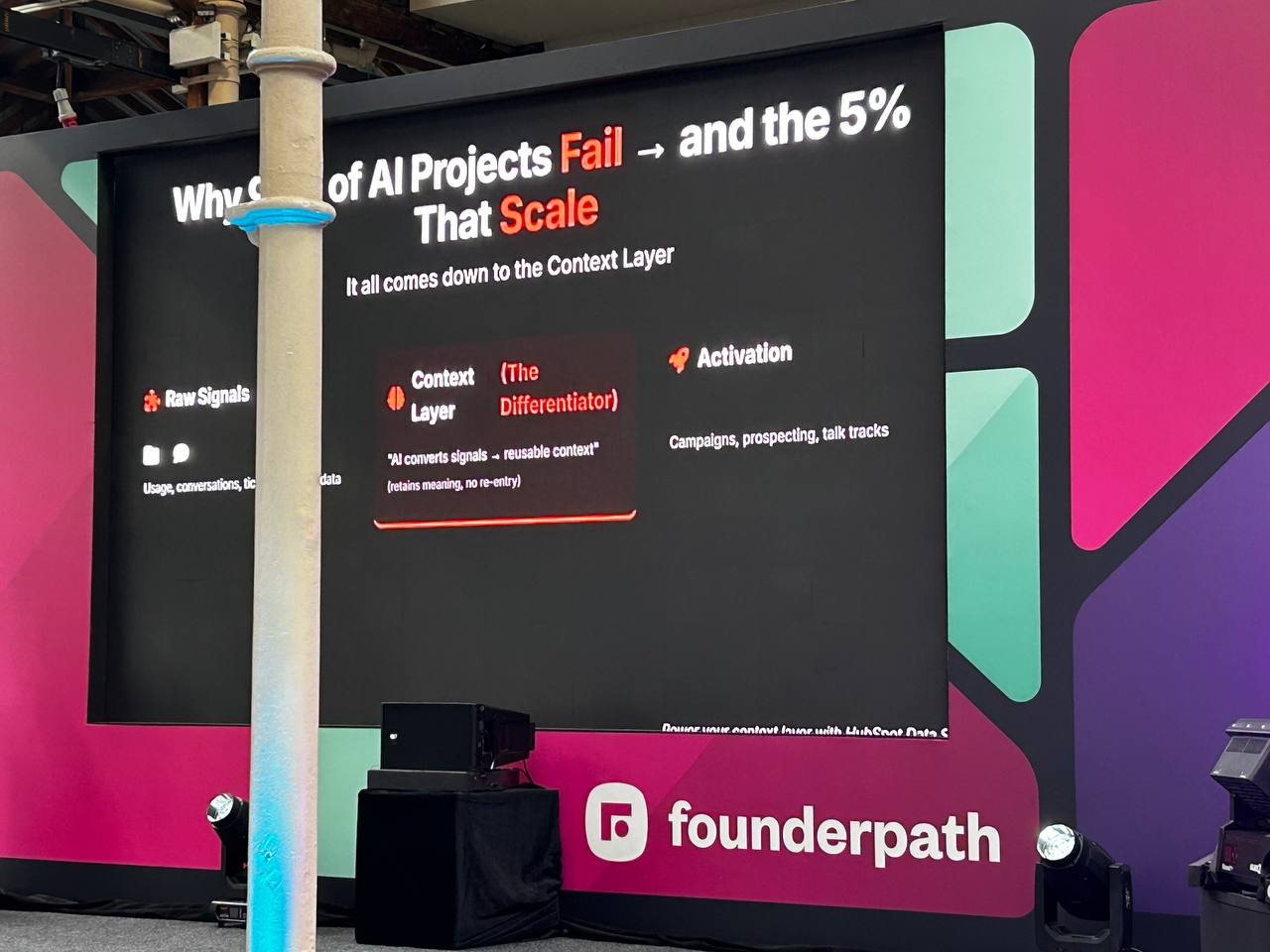
And the spot on is his data on how recent salesbots convert just like humans (with video examples of how exactly this happens - both mesmerizing and terrifying).
Other Kieran’s topics that landed:
- Sales and CS teams will be augmented, not expanded
- AI co-pilots aren’t add-ons — they’re becoming the workflow
- Personalization and onboarding will be handled by the product, not reps
🔹 From SaaS to AI-Native (OpenAI + Elaia)
The session with Marc Rougier (Elaia) and Máire O’Herlihy (OpenAI) was a mixture of friendly chat and value, giving insights into how OpenAI practices its own preaching.
Three points shaped the conversation:
- AI-native isn’t about adding models — it’s about owning your data advantage
- OpenAI builds with its own tools — not because of branding, but velocity
- Startups will scale faster with new tools available for them (including but not limited to OpenAI offering)
It echoed what we see daily: founders don’t need full-time teams and expensive tools — they need affordable solutions and scalable co-building partners who understand AI-enabled delivery.
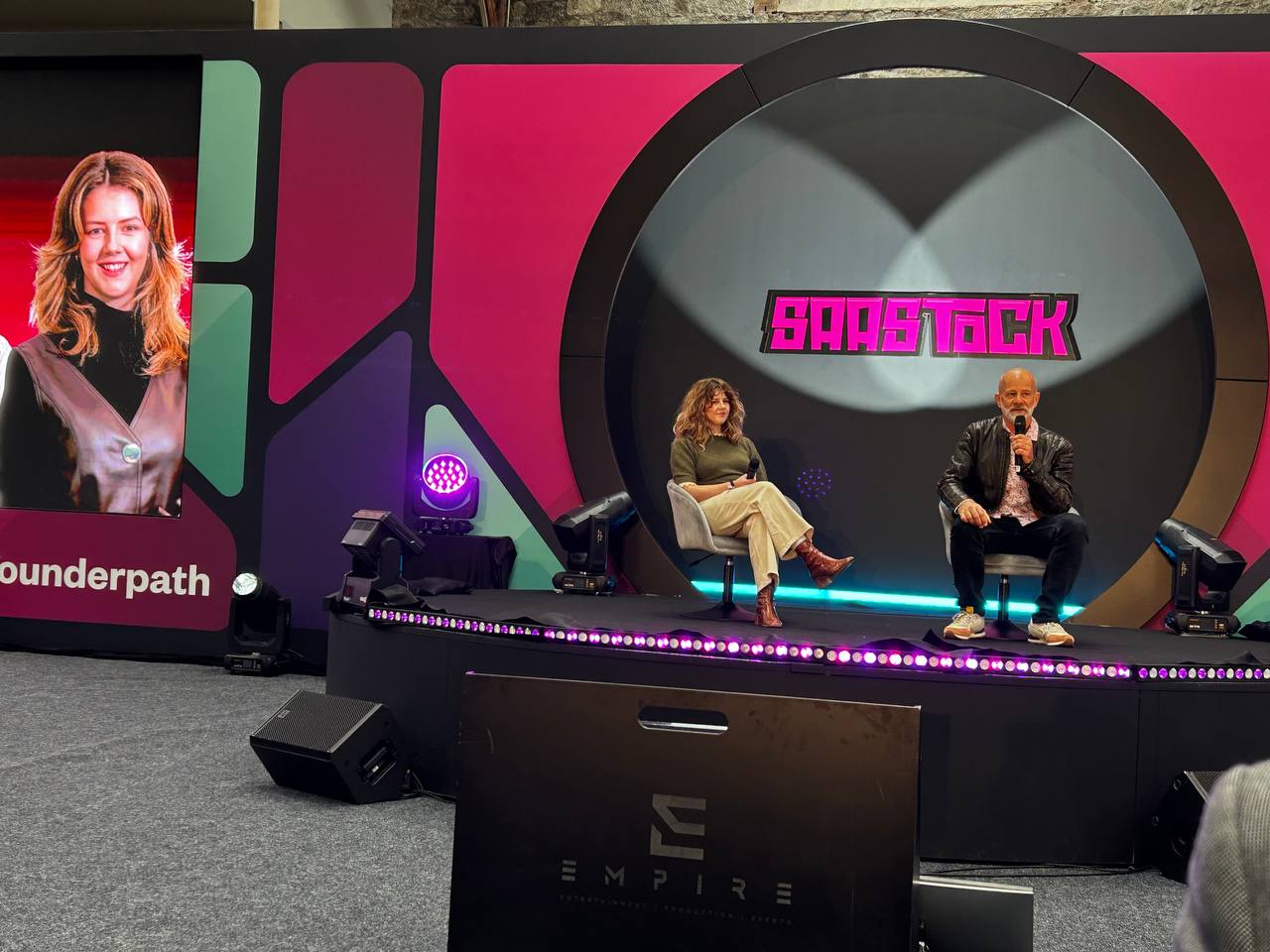
🔹 GTM by Doing, Not Pitching
Stan Massueras (ElevenLabs)’s talk — “How ElevenLabs Runs Sales in a New Era of GTM” — felt more like a founder origin story than a framework.
Key threads that are worth mentioning are:
- Outstanding hiring approach: find visionaries, not 9-to-5 labourers
- Sales should start before hiring
- Geography is a strategy, not an afterthought
- Product voice drives traction before sales decks existed
It was less “here’s the playbook” and more “here’s how we moved before others figured out what we were doing.”
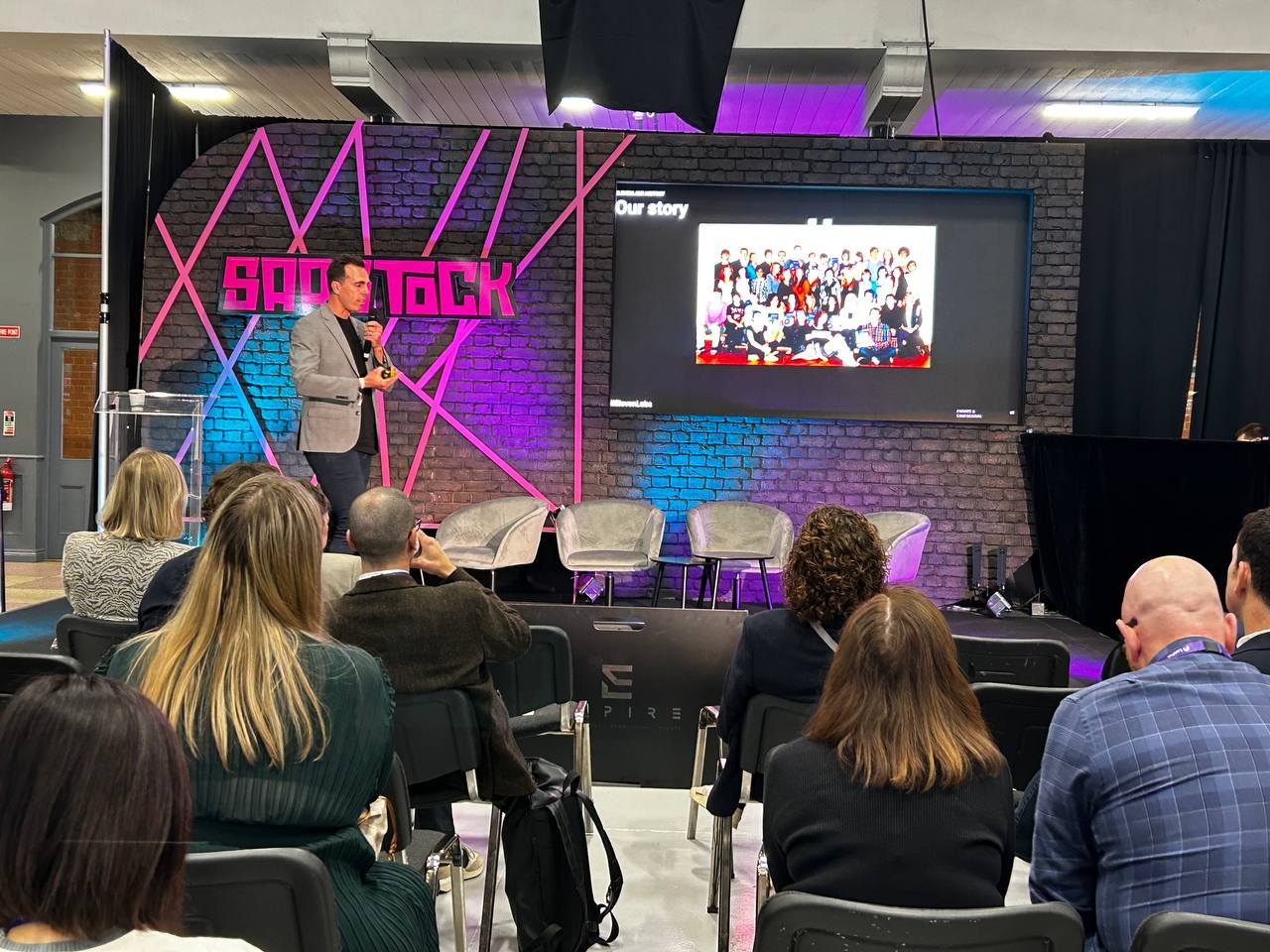
🔹 Side Events: Women of SaaS & Fierce Tech Founders
Between meetups, lounges, and private sessions, one side event stood out:
“Women of SaaS & Fierce Tech Founders: Women Leading & Scaling in SaaS.”
With Mellivora Software being female-led, this was more than a symbolic checkbox — it showed how leadership, capital, and AI innovation are no longer tied to one default demographic. The energy there was different — ambitious but grounded.
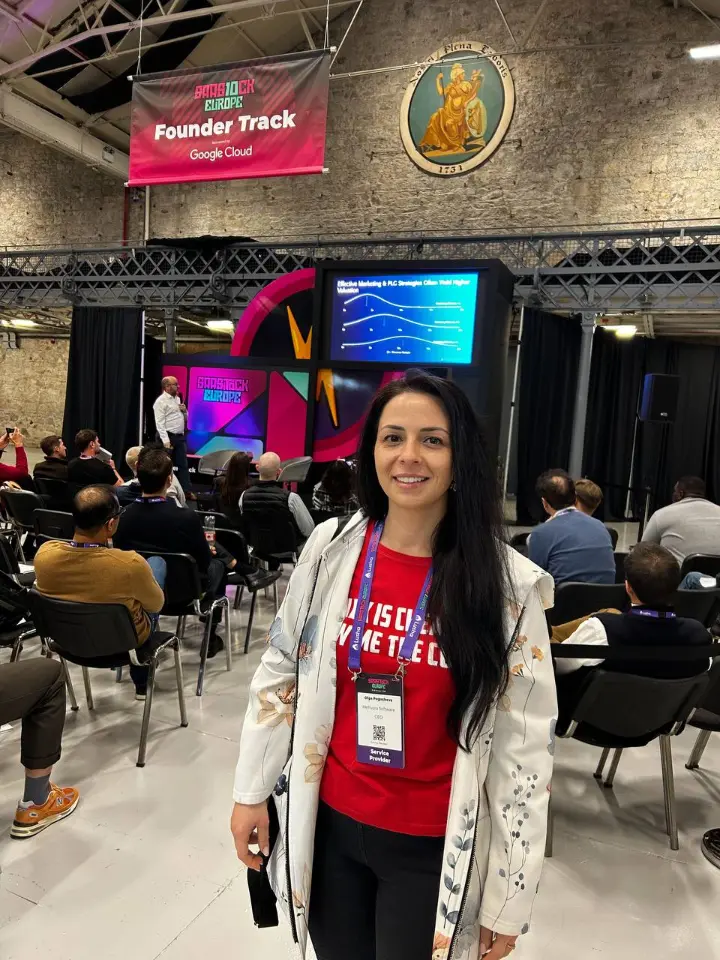
The Takeaway: AI-Native Builders Will Set the Pace
SaaStock Europe 2025 didn’t feel like a conference about SaaS. It felt like a blueprint for post-SaaS companies — where AI, GTM, and product velocity are part of the same engine.
Three things were obvious across the talks and pitch floors:
- AI-native is the new default
- Capital efficiency is back in style
If SaaStock is a preview of 2026, the companies that scale won’t be the ones with the biggest teams, but the ones with the fastest execution and the right partners behind the curtain.
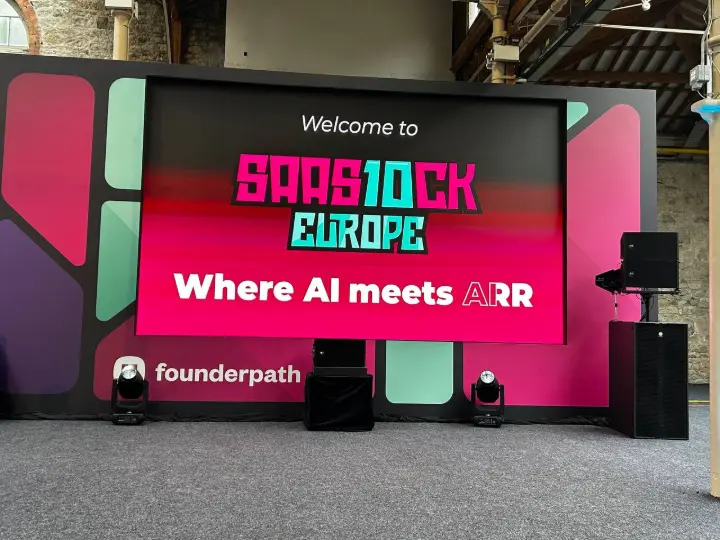
And on the bright side for IT vendors and service providers? It feels like external delivery partners will scale a big chunk of what's coming, IF they transition from “developers on demand” to product-first engineering teams.
For Mellivora Software — working with startups on MVPs, engineering teams, and AI-enabled products — it reaffirmed one thing: we’re building in the right direction, at the right time, with the right model.
At Mellivora, we listen before we build. And if you’re struggling with tech side of your business, limited resources, or a growing product backlog, maybe it’s time we talked.
Everyone’s welcome.
Tell us your pain. Get a solution.